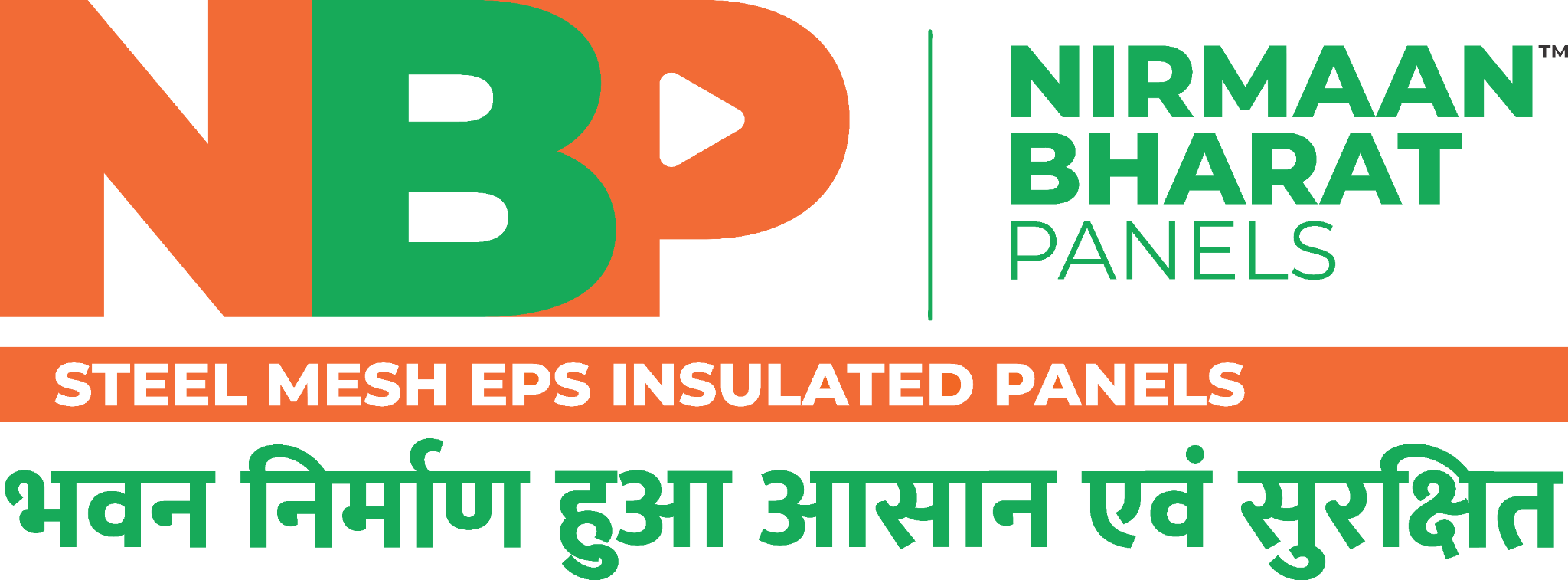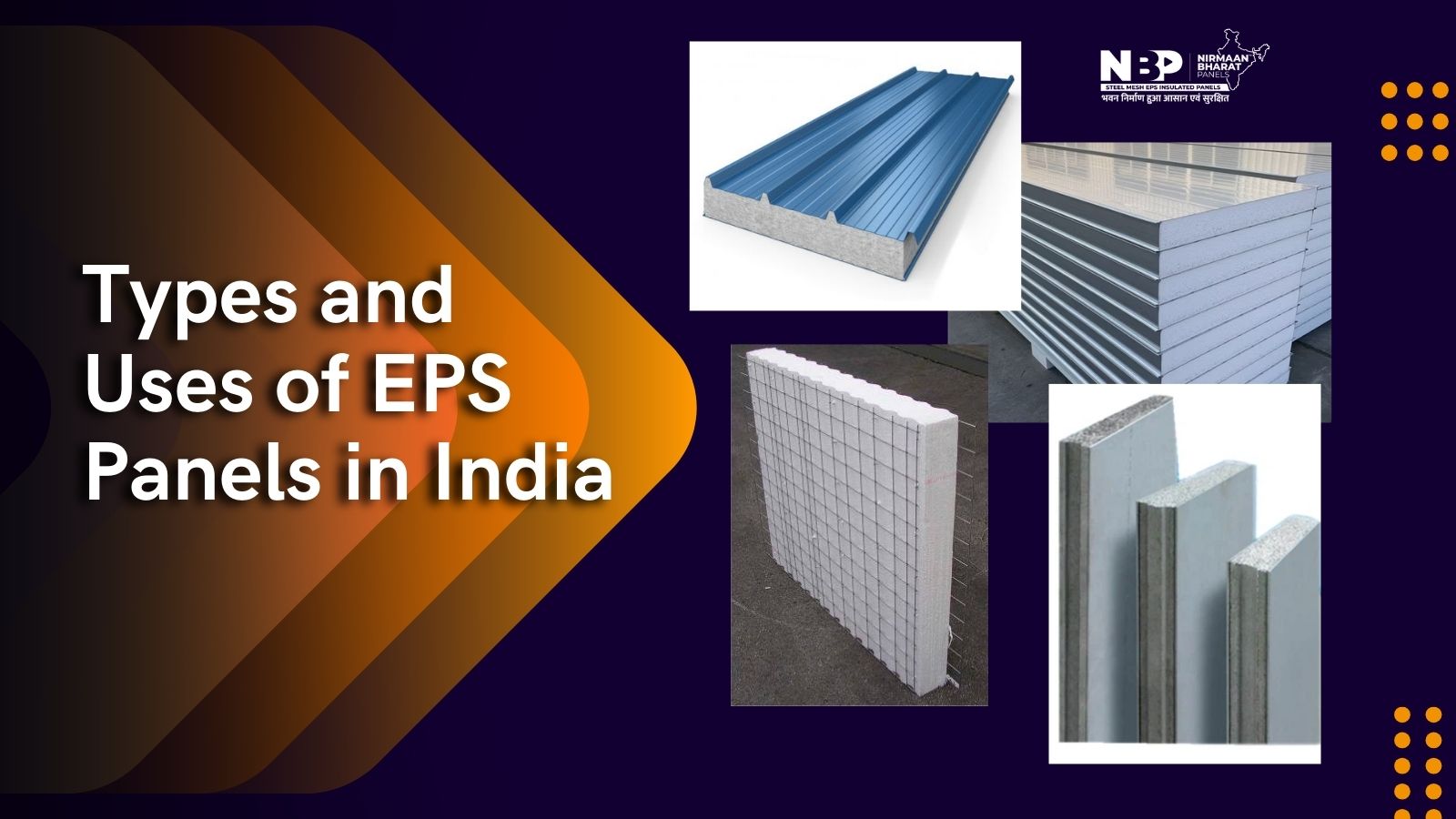In India, the construction industry is rapidly evolving to meet the demands of sustainability, efficiency, and durability. Expanded Polystyrene (EPS) panels have emerged as a popular choice in modern construction. Their affordability, ease of installation, and thermal insulation properties make them ideal for a variety of applications, from residential and commercial buildings to cold storage and prefab structures. In this blog, we’ll dive into the types of EPS panels available in India and their uses, as well as answer some frequently asked questions about these versatile building materials.
Table of Contents
ToggleWhat are EPS Panels?
EPS (Expanded Polystyrene) panels are lightweight yet durable construction materials made from polystyrene beads. These beads are expanded through steam and pressure, forming a rigid, closed-cell foam. When used as insulation and structural support, EPS panels provide superior thermal efficiency, sound insulation, and moisture resistance, which makes them an excellent choice for both interior and exterior construction projects.
Key Benefits of EPS Panels
EPS panels offer a wide range of benefits, including:
- Thermal Insulation: EPS panels have high thermal resistance, helping maintain interior temperatures and reduce energy costs.
- Lightweight: Their lightweight nature makes them easy to handle and transport, reducing construction time and labour costs.
- Durability: EPS panels are highly durable and capable of withstanding environmental changes without deteriorating over time.
- Eco-Friendly: EPS panels are recyclable and generate minimal waste, aligning with eco-friendly construction practices.
Types of EPS Panels Available in India
EPS panels are available in a range of types, each designed to meet particular construction requirements. Below are some of the most commonly used types found in the Indian market:
1. Standard EPS Insulated Panels
Standard EPS insulated panels are the most commonly used EPS panels in India. These panels consist of an EPS core sandwiched between two sheets, usually of metal or fibre cement, providing excellent insulation and strength. Standard EPS panels are ideal for walling, roofing, and partitions in both residential and commercial construction.
- Common Applications: Residential housing, modular buildings, and partition walls.
- Advantages: Lightweight, easy to install, and highly energy-efficient.
2. EPS Cement Sandwich Panels
EPS cement sandwich panels are made from a combination of EPS, cement, and other lightweight materials. These panels are popular in projects requiring higher load-bearing capabilities and enhanced fire resistance. The combination of cement and EPS makes these panels more robust and suitable for exterior walls and roofing.
- Common Applications: Exterior walls, roofing, and floor systems.
- Advantages: High load-bearing capacity, fire resistance, and enhanced sound insulation.
3. EPS Roofing Panels
EPS roofing panels are specifically designed for roofing applications. With a metal or fibre-reinforced sheet on top and an EPS core in the middle, these panels offer excellent thermal insulation, ensuring energy efficiency and comfort within the building. EPS roofing panels are also weather-resistant, making them suitable for different climate zones in India.
- Common Applications: Roofing for warehouses, industrial buildings, and residential structures.
- Advantages: Thermal efficiency, easy installation, and weather resistance.
4. Fire-retardant EPS Panels
Fire-retardant EPS panels are manufactured using EPS material treated with fire-resistant additives, offering an extra layer of safety in fire-prone areas. These panels comply with fire safety standards and are commonly used in construction projects requiring fireproof materials.
- Common Applications: Schools, hospitals, and multi-story buildings.
- Advantages: High fire resistance, lightweight, and energy-efficient.
5. High-Density EPS Panels
High-density EPS panels have a higher EPS density, offering increased structural strength and insulation capabilities. These panels are often used in projects where additional load-bearing strength is required, such as industrial buildings or structures exposed to extreme conditions.
- Common Applications: Industrial buildings, cold storage facilities, and load-bearing walls.
- Advantages: Enhanced strength, high insulation, and resistance to environmental impacts.
6. EPS Structural Panels for Cold Storage
These EPS panels are specifically designed for cold storage applications. They are crafted with high-density EPS foam and come with an additional protective layer, often made of galvanized steel or aluminium. EPS panels for cold storage have superior insulation properties, making them ideal for maintaining a constant temperature in storage facilities.
- Common Applications: Cold storage warehouses, food processing facilities, and pharmaceutical storage units.
- Advantages: Superior thermal insulation, moisture resistance, and durability.
Uses of EPS Panels in India
EPS panels are suitable for various construction applications across different sectors. Here are some common uses:
1. Residential Housing
EPS panels have revolutionized affordable housing in India. The lightweight nature and insulation properties of these panels make them ideal for building energy-efficient homes. EPS panels can be used for walls, roofs, and even flooring, providing a durable and eco-friendly solution.
2. Modular and Prefab Structures
The ease of installation and portability of EPS panels make them an excellent choice for modular and prefabricated structures. Prefab schools, offices, and healthcare facilities use EPS panels to reduce construction time and costs, offering a quick and sustainable alternative to traditional construction.
3. Cold Storage and Food Industry
EPS panels are a preferred choice for constructing cold storage units due to their thermal insulation capabilities. Cold storage facilities in India, including warehouses and food processing plants, use EPS panels to maintain specific temperature levels, ensuring the freshness and quality of perishable goods.
4. Industrial and Commercial Buildings
EPS panels are widely used in industrial buildings and commercial spaces such as warehouses, manufacturing units, and retail outlets. These panels provide excellent sound insulation, temperature control, and fire resistance, making them ideal for industrial and commercial construction.
5. Temporary Structures and Relief Housing
EPS panels are ideal for constructing temporary shelters, disaster relief housing, and portable structures. Their lightweight, easy-to-assemble nature allows for rapid deployment in areas needing urgent accommodation, such as disaster-hit regions.
6. Soundproofing and Acoustic Insulation
EPS panels also serve as an excellent material for soundproofing applications in theatres, recording studios, and office spaces. Their high-density foam structure effectively reduces noise transmission, providing a quiet environment in spaces where sound control is essential.
Advantages of Using EPS Panels in India
- Energy Efficiency: EPS panels significantly reduce energy costs by providing excellent insulation, maintaining a consistent indoor temperature, and reducing heating or cooling requirements.
- Cost-Effective: Compared to traditional construction materials, EPS panels are affordable and reduce overall construction expenses.
- Quick Installation: The lightweight and modular nature of EPS panels enables faster installation, reducing labour costs and construction timelines.
- Eco-Friendly: EPS panels are recyclable, and their energy-saving capabilities contribute to environmentally friendly building practices.
- Versatile Applications: EPS panels are suitable for various applications, from residential housing and industrial buildings to cold storage facilities and temporary structures.
Conclusion
EPS panels, including various types of EPS Panels, have emerged as a versatile, cost-effective, and eco-friendly solution for diverse construction needs in India. From residential and industrial buildings to cold storage facilities, these panels excel in insulation, durability, and easy installation. Nirmaan Bharat Panels leads this innovation, offering premium-quality EPS panels tailored to different project requirements.
Whether constructing an energy-efficient home, a modular building, or a temperature-controlled storage facility, Types of EPS Panels provide sustainable, affordable options for modern construction. Contact Nirmaan Bharat Panels today for expert guidance and top-tier products to elevate your next project.
FAQs
Q1. Are EPS panels safe for indoor use?
Ans: Yes, EPS panels are safe for indoor use. They are manufactured to meet fire safety and environmental standards, and many varieties come with fire-retardant additives. EPS panels do not release harmful emissions, making them safe for residential and commercial interiors.
Q2. How long do EPS panels last in construction?
Ans: EPS panels are highly durable and can last for several decades when properly installed and maintained. They are resistant to moisture, pests, and general wear, making them a long-lasting choice for different construction projects.
Q3. Can EPS panels be used for cold storage?
Ans: Absolutely. EPS panels are ideal for cold storage applications due to their superior thermal insulation properties. They help maintain stable temperatures, essential for storing perishable goods and are widely used in the food processing and pharmaceutical industries.



